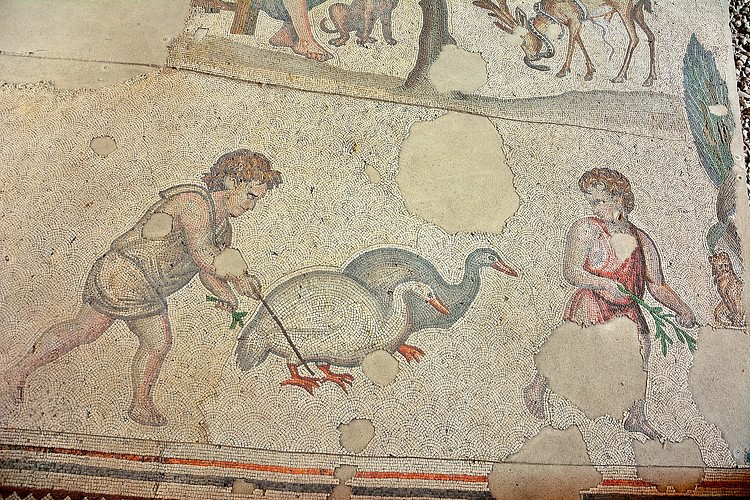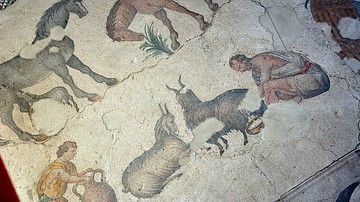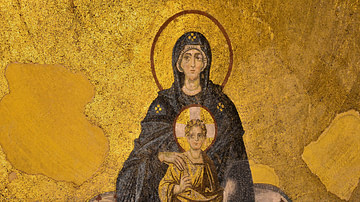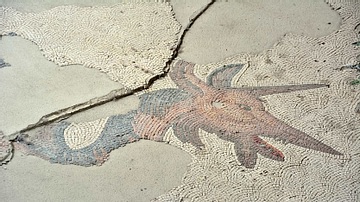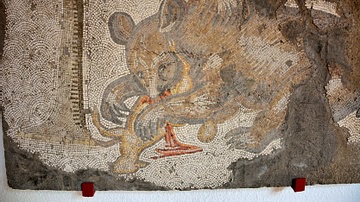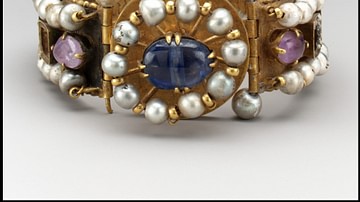Illustration
The gooseherd: A boy and a girl herding two geese are depicted in this mosaic. Great Palace Mosaic Museum, Istanbul, Turkey. Period: Early Byzantine, circa 6th. century CE. Place: Constantinople, (Modern Istanbul, Turkey). Great Palace Mosaic Museum, Istanbul, Turkey.
The Great Palace Mosaic Museum was inaugurated in 1987 CE. The mosaics in the museum mostly depict animals and humans in nature, mythological, pastoral motifs and hunting scenes. Once located in today’s Sultan Ahmet District, the Great Palace of Constantinople was built by Constantine the Great. The Palace area extended from the Hippodrome to the coastline. Destroyed in the Nika Riot in the 6th century CE, the Great Palace was rebuilt by Justinian I. The mosaics, decorating the floors of the museum today date back to that restoration time. The mosaics are just one-seventh of the original work.
Cite This Work
APA Style
Team, H. S. R. (2018, January 11). Byzantine Gooseherd Mosaic. World History Encyclopedia. Retrieved from https://www.worldhistory.org/image/7817/byzantine-gooseherd-mosaic/
Chicago Style
Team, Hagia Sophia Research. "Byzantine Gooseherd Mosaic." World History Encyclopedia. Last modified January 11, 2018. https://www.worldhistory.org/image/7817/byzantine-gooseherd-mosaic/.
MLA Style
Team, Hagia Sophia Research. "Byzantine Gooseherd Mosaic." World History Encyclopedia. World History Encyclopedia, 11 Jan 2018. Web. 16 Apr 2024.
